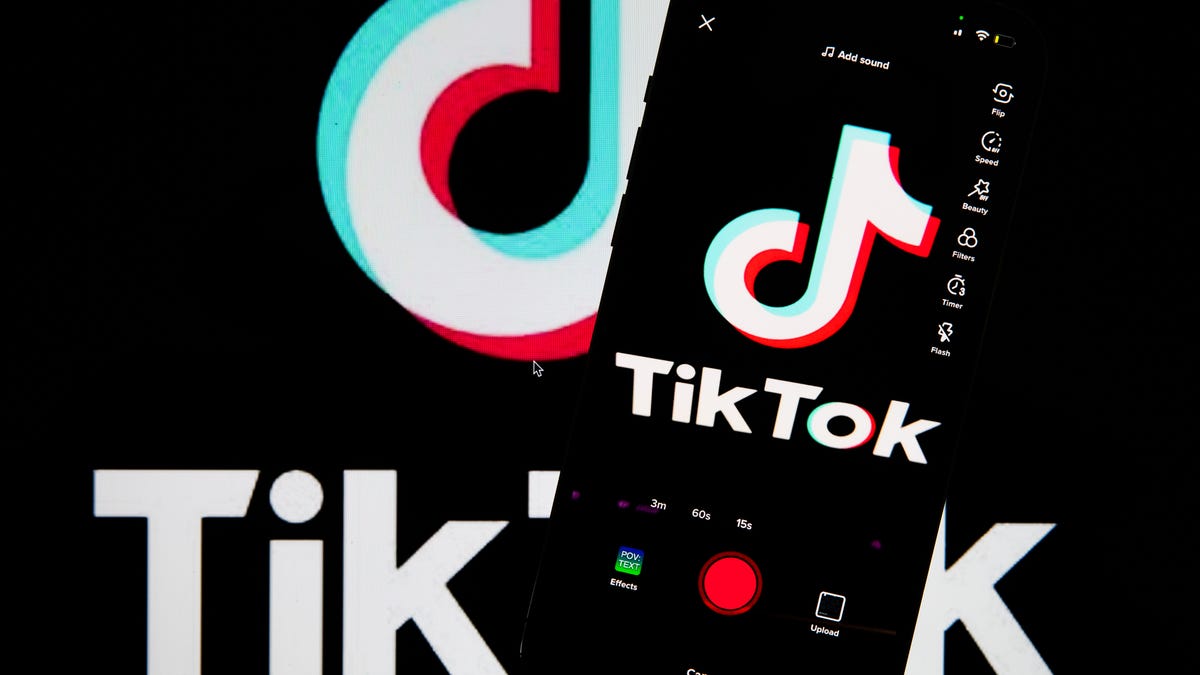'Chronically online': What the phrase means, and some examples
Some creators are sharing the most "chronically online" takes they've ever heard. Here's what they're talking about.

TikTok is one key platform where people are venting about "chronically online" behavior.
We all spend a good chunk of time online these days, especially during the COVID-19 pandemic. But a new phrase floating around online dubs some people "chronically online." The term has inspired rants and discussions across the internet, but what does it mean exactly?
Here's what to know about the phrase.
What does 'chronically online' mean?
Chronically online describes those who spend so much time online it skews their sense of reality and hinders their ability to effectively communicate about topics like politics or social justice because they lack real-world experience. Someone who's chronically online tends to call out "problematic" behavior others may not see as an issue. Or they may call out behavior in a nonsensical way.
Here's an example from TikTok, in which someone acts out a series of scenarios involving a chronically online friend who calls out another person's purchasing habits and word choice:
@mynameisreginaphlange #Inverted some of yall really need to chill #chronicallyonline #welcometotheinternet
♬ Welcome to the Internet - Bo Burnham
Urban Dictionary defines chronically online as: "Someone who is basically always on the internet and their entire existence revolves around being on the internet. People who are chronically online typically have no real friends IRL, and stay online starting useless debates that literally achieve nothing outside of a screen." (Ouch.)
Basically, the phrase serves as a way to criticize others, and in a climate known for judgment and critique, there's really nothing more "online" than that.
What are some examples?
Some people are turning to TikTok to share instances in which someone draws parallels between two situations that are actually quite different (the implication is that those with more experience in the real, physical world would immediately understand the distinction). For example, this TikTok user shared an experience in which someone compared her stance against dog breeding to being against interracial human relationships:
@poodlepeeps #stitch with @sorrel.hartley
♬ original sound - Kassie
This video calls out another TikTok user for saying, "Why is it so normalized to stop drinking when pregnant? Isn't not wanting your baby to have disabilities kinda ableist?" (Ableism is discrimination or prejudice against people with disabilities.)
@honestlyded #duet with @moth876 fake nts are genuinely the worst #SHEINcares #ableism #ableismisntcute #ableist #ihatednf #ableismawareness #ableismisreal
♬ original sound - kirstin
Others mock people for being online so often they seemingly haven't experienced basic human emotions through real-life interactions. This thread, for instance, pokes fun at tweets in which people describe the perceived novelty of emotions like empathy and dislike.
"Being grossed out by another person's energy and mentality is such a real thing," one original tweet reads.
"That's called disliking someone," someone quips in a retweet. The user continues to poke fun, mockingly adding a string of buzzy "chronically online" words: "'normalize not vibing to someone's toxic behavioral gaslighting so you can manifest mental energy' what. Who r u people."
chronically online mfers https://t.co/P8n4mFxFna
— mclovin (@highkeyafish) August 22, 2021
Another tweet reads: "Making IRL [in real life] mutuals at college y'all this shit is crazy," to which someone replies, "You mean friends?"
twitter: a story in four parts pic.twitter.com/D8HmaGHo4i
— shereen (@shereeny) August 22, 2021
Who exactly is using this phrase?
So far, it's largely younger millennials and members of Gen Z who are pointing out what they see as chronically online behavior, which is somewhat amusing given those are the groups that never really knew a world without the internet. The phrase has surfaced via hashtags across TikTok, Twitter, Instagram and Reddit.
There's an irony here in the idea that someone coming across and commenting on chronically online behavior likely spends a good chunk of time online themselves, as some people have pointed out:
@ultimatejoefan #chronicallyonline #lgbtq #discourse #shinji
♬ Despicable Me (From "Despicable Me") - Hot Contender
Others have defended younger people who are perceived as being out of touch by highlighting their age and arguing that they've spent the last year and a half online during the pandemic -- just like pretty much everyone else, of course, but perhaps with fewer years of offline experience under their belts.
@hedgehoghoes please tell me this makes sense ??? intolerable quaran-teens #hedgehoghoe #chronicallyonline #hottake #controversial
♬ original sound - hedgie
@holyquaranteen “chronically online take” yeah theyre 14 gay and in the midwest. that’ll do that too
♬ original sound - ang
Of course, critiquing people for being overly sensitive or out of touch is likely to inspire pushback, which some commentators are bracing for.
"I'm giving it a week before someone starts the 'chronically online is a slur' discourse," one tweet reads. "It would be the most ironic thing ever."

